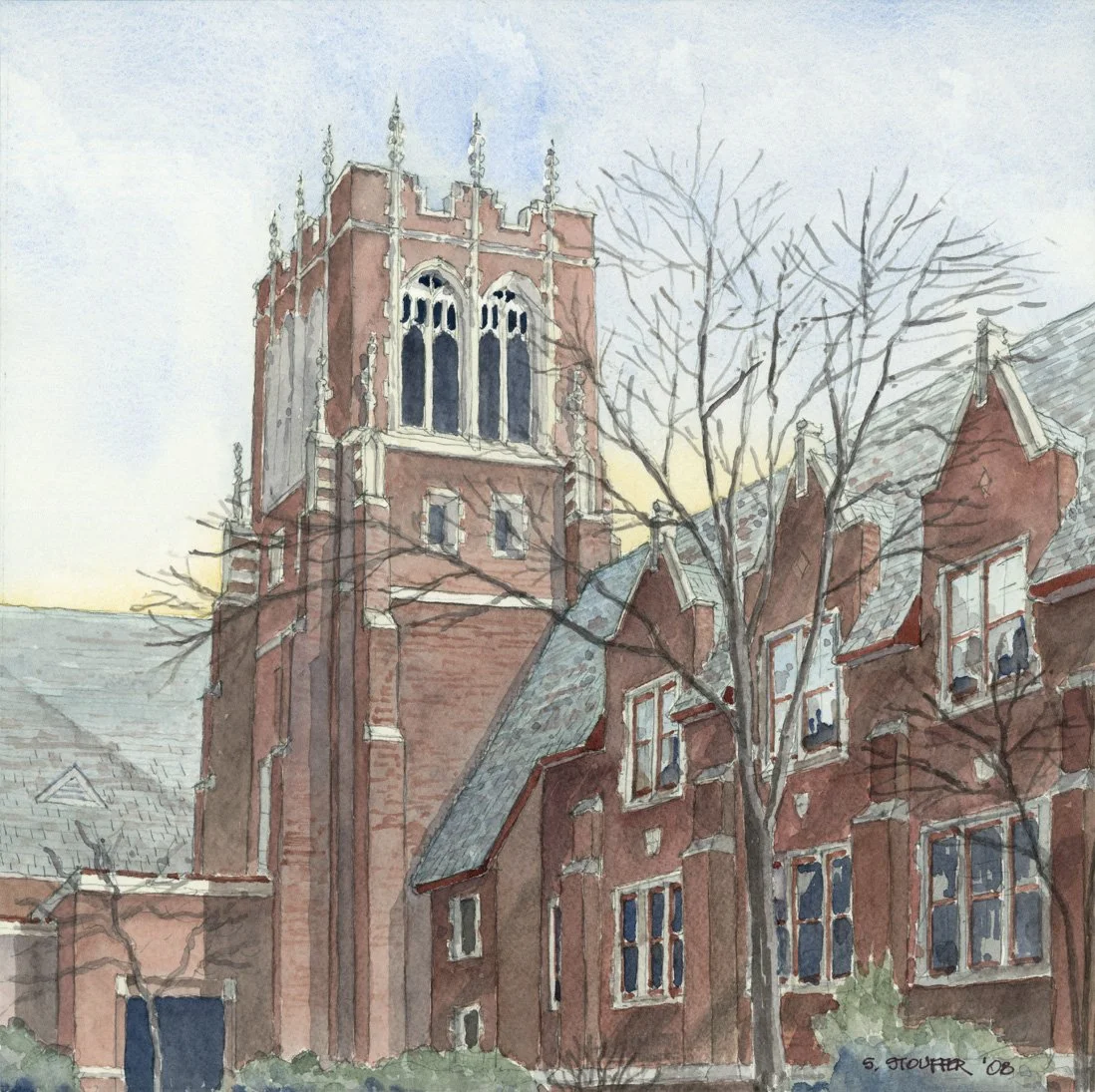
History of Plymouth Church
We agree to differ. We resolve to love. We unite to serve.
Plymouth Congregational Church first gathered in 1857, the same year that Des Moines was named the state capital. Throughout our history, the people of Plymouth have appreciated progressive theology and embraced freedom, education, social justice, community involvement, and congregational autonomy in support of our purpose—to increase our love of God, neighbor and creation.
Plymouth itself has been blessed with outstanding pastoral and lay leadership. Many pastors and congregation members have been prominently involved in local, state and national concerns, focusing their efforts on creating a more compassionate, generous, peaceful, responsible and loving world. Rev. Stoddard Lane, our senior minister from 1929 until 1943 encouraged the congregation with the motto: “We agree to differ. We resolve to love. We unite to serve.” Read more about Rev. Stoddard Lane here.
-
Plymouth Church was started by 11 men and women who signed the “Articles of Government and Faith of the Congregational Churches” in 1857. The first church building was a small frame building on Court Avenue in Des Moines. As membership increased, the church moved to the northeast corner of 7th and Locust Streets. In 1864, and they sent groups out to form three new congregations —Pilgrim, North Park and Greenwood.
In 1900 the church planned a new grand building at 8th and Pleasant Streets in downtown Des Moines. The church was built on what came to be known as "Piety Hill”. By 1919 there were three Congregational churches in Des Moines: Plymouth at 8th and Pleasant pastored by J.E. Kirbye, Greenwood pastored by Rev. J. P. Burling,and Waveland Park pastored by H. J. Sealey. The current Plymouth Church building has three rooms honoring these early congregations: Waveland, Greenwood and Burling.
In 1925 the city wished to extend 8th Street through to Keosauqua Way and the church property was acquired by the city. A building committee was formed and decided to build a new church on the western outskirts of Des Moines. The four neighborhood churches, North Park, Pilgrim, Greenwood and Waveland joined with Old Plymouth to build the new large church at 41st and Ingersoll. Since that time, the church has undergone two major expansions.
In 1957 the Congregational Church and the Evangelical and Reformed Church merged to form the United Church of Christ, our current denomination.
-
Plymouth Church has always been a leader in social action in the Des Moines Community. In 1883 we founded and supported the Sunbeam Rescue Mission. The mission was one of the first charitable missions in Des Moines. It served as a multi-purpose social agency providing housing for the homeless and job training. The mission was also a business enterprise that included a restaurant, laundry, a free medical clinic, and a kindling factory.
In 1968 the church opened a retirement home for low income seniors, Plymouth Place, located across the street from the church. In 1993 Plymouth became one of the first churches to adopt an Open & Affirming policy, which welcomes those who are part of the LGBTQ+ Community. In 2018 the church began to display a “Black Lives Matter” banner.
-
One cherished story in Plymouth history is that the first location of Plymouth Church at 4th and Court Ave served as a stop on the Underground Railroad. However, it is unlikely that the church served as a physical stop because the Underground Railroad conductors tried to avoid densely populated areas. The Des Moines Underground Railroad route did pass near the first location of Plymouth Church in downtown Des Moines but there’s no historical documentation that Plymouth Church was a stop. Certainly, however, the membership of early Plymouth held abolitionist sentiments.
-
Iowa Heritage Digital Collections is a free resource for students, educators, historians, genealogists, and anyone else interested in the people, places and institutions of Iowa. Plymouth Church has several documents available for viewing. Click here to see the collection.
Plymouth Church History Videos
The video below is the first video in a series of nine videos that were produced by Plymouth Church and former Senior Pastor, David Ruhe, to celebrate the church’s 150th Anniversary. These nine videos will play after the first.
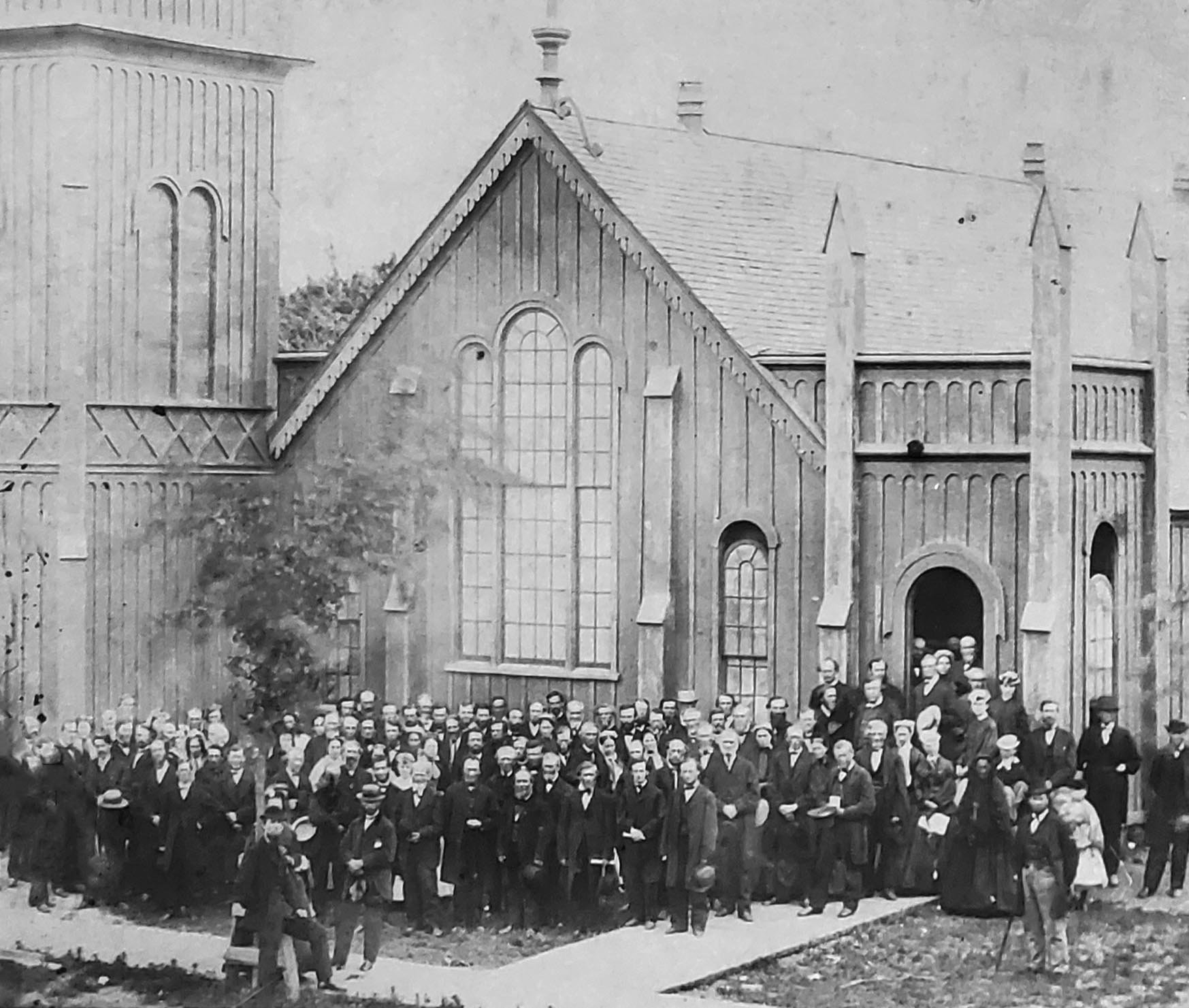
First Plymouth on 4th St and Court Ave (1857-1876)
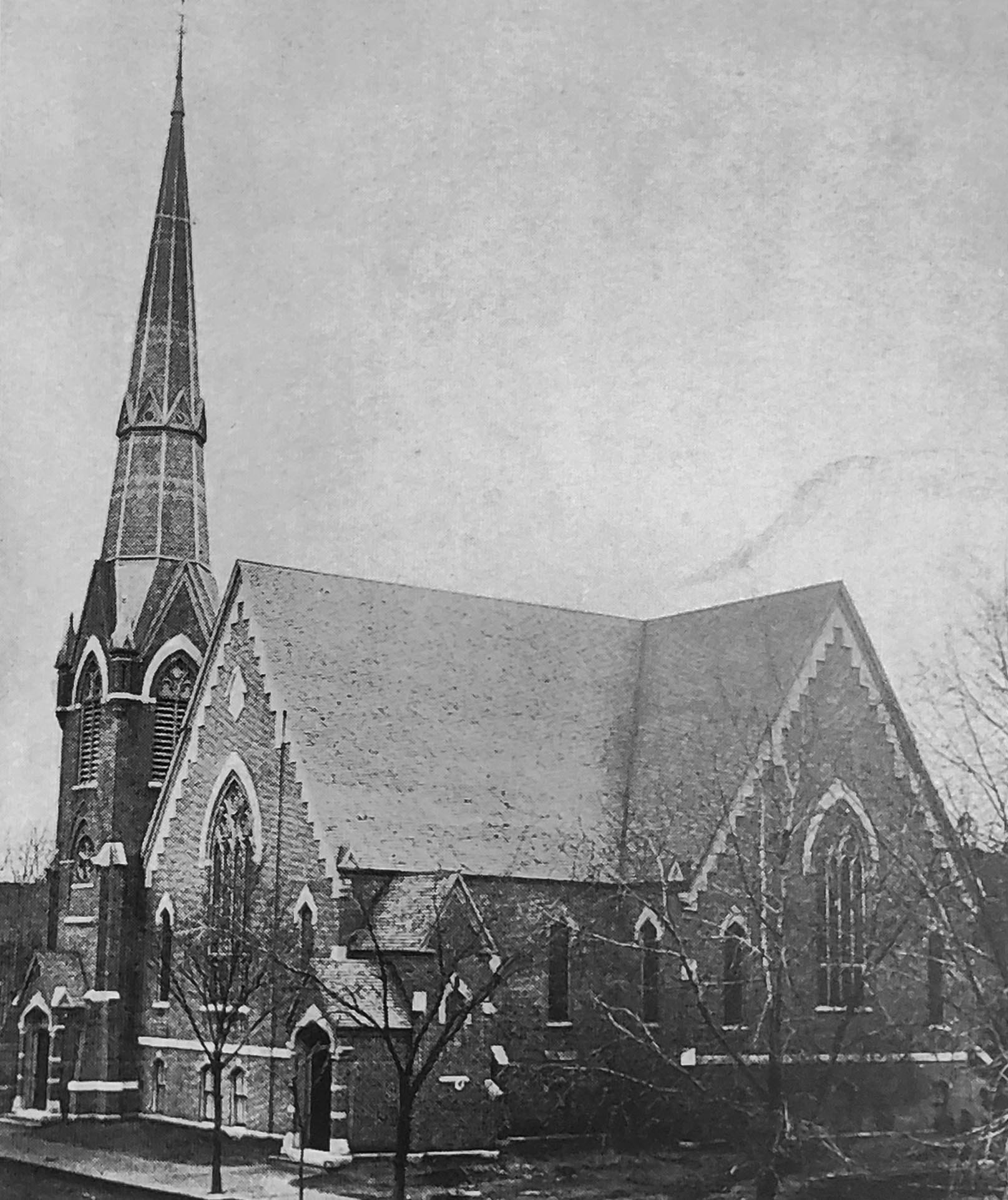
Plymouth moves to a new location (1876-1911)
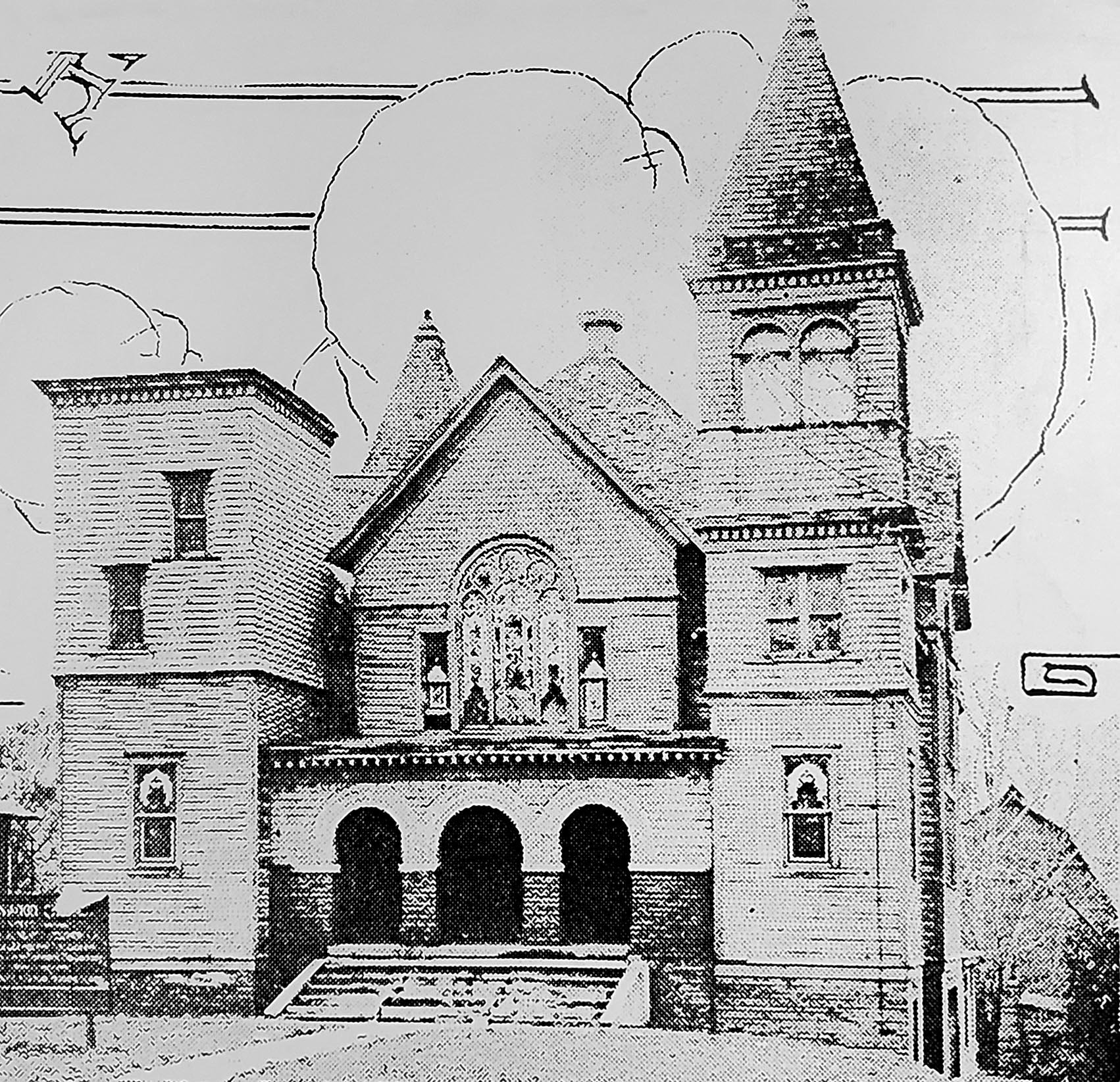
Greenwood Church opens on 35th St and Ingersoll Ave (1898-1925). This building became the first home of the Des Moines Playhouse in 1927.
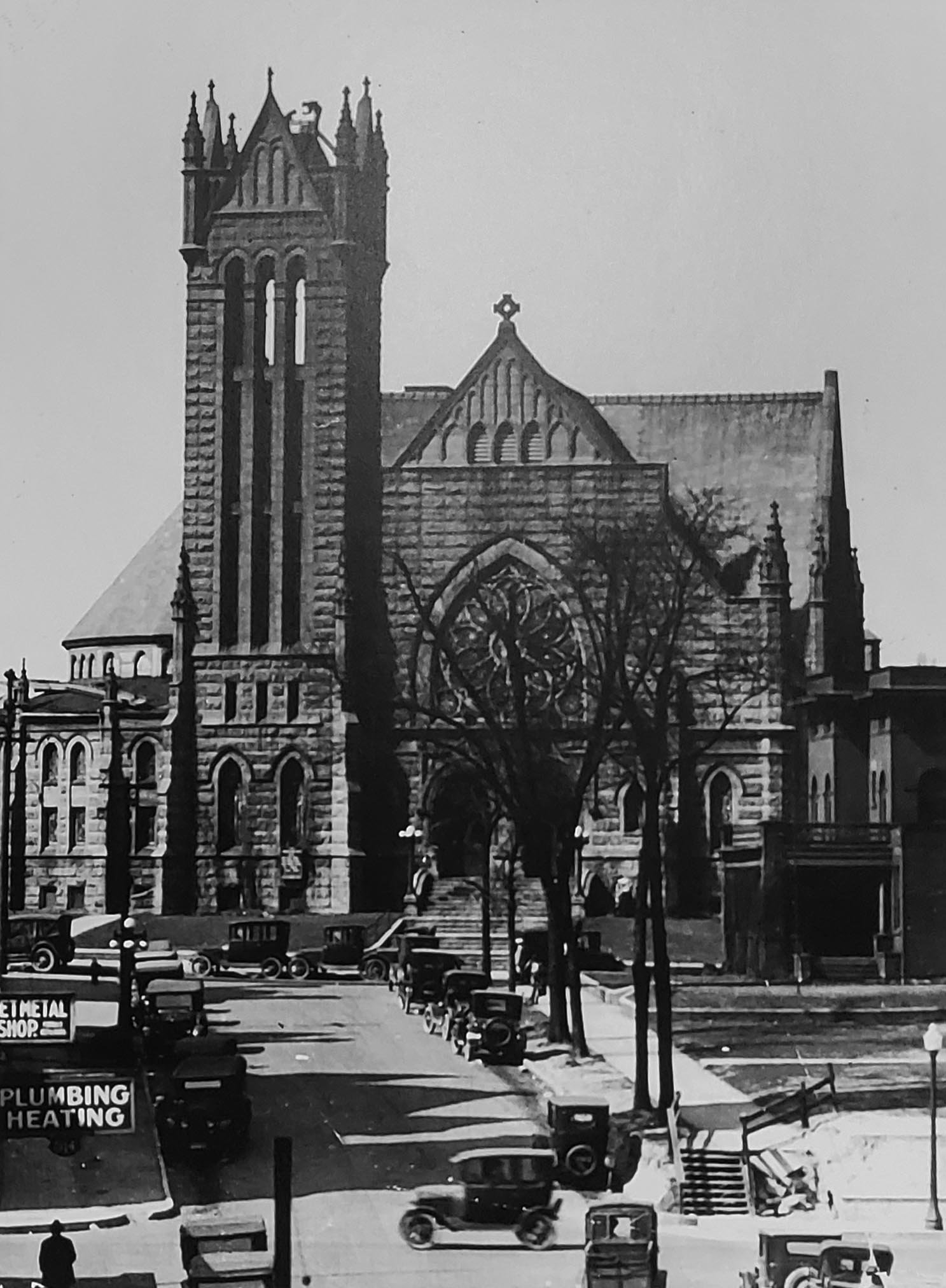
Plymouth moves to a new location (1876-1911)
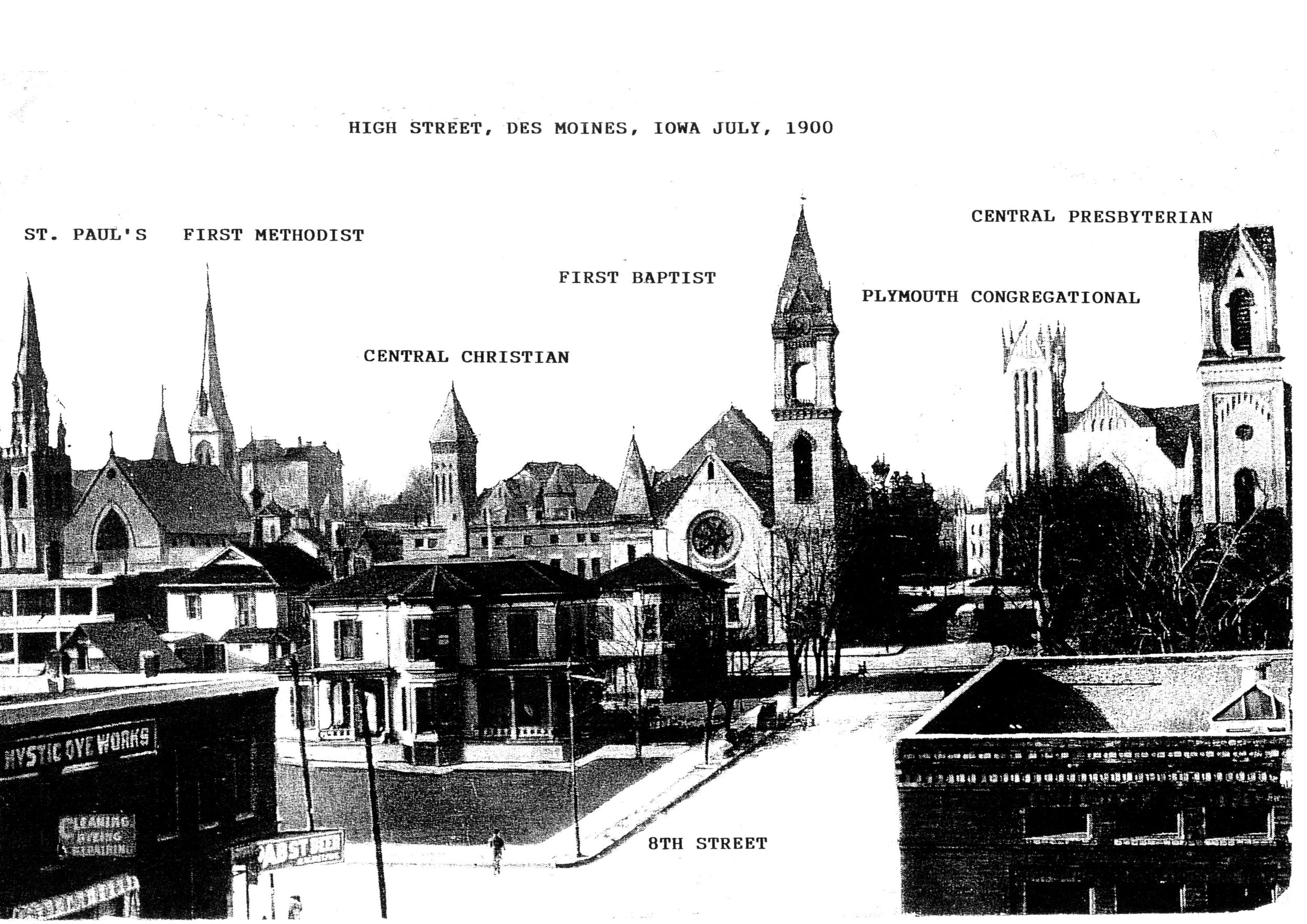
"Piety Hill" High Street in Des Moines (1900)
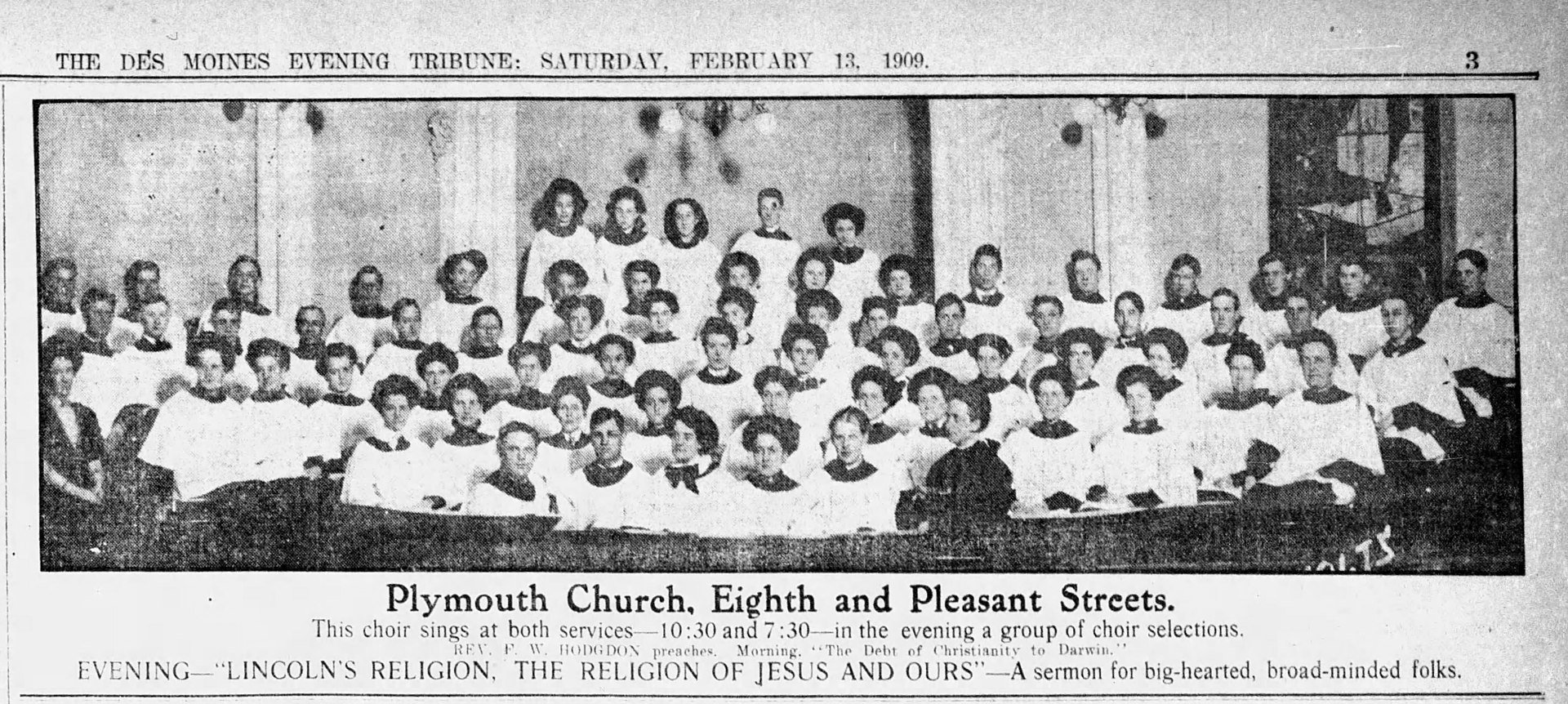
1909 Advertisement for Plymouth Sunday Service
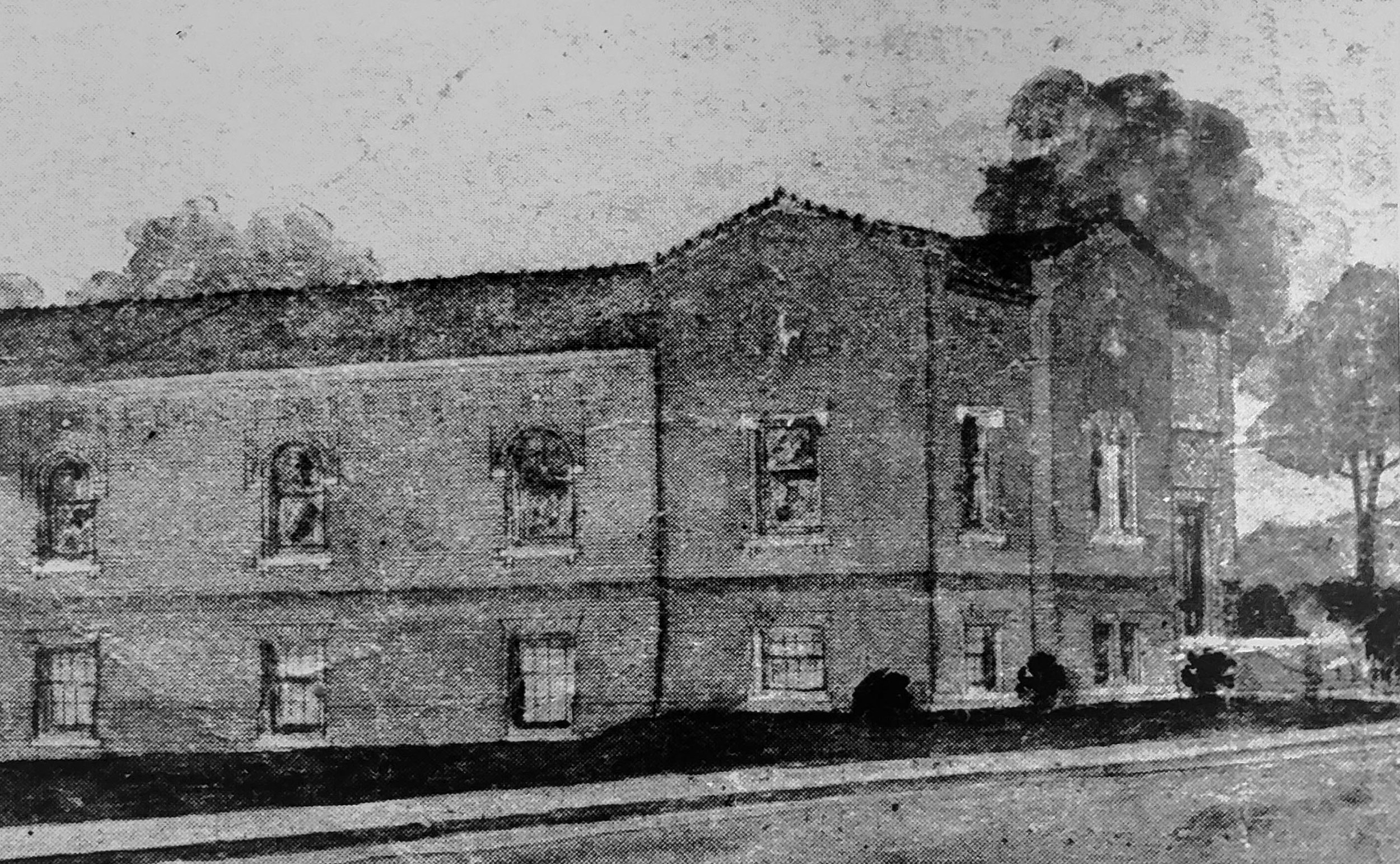
Waveland Park Congregational Church on 1117 42nd. (1915-1926).
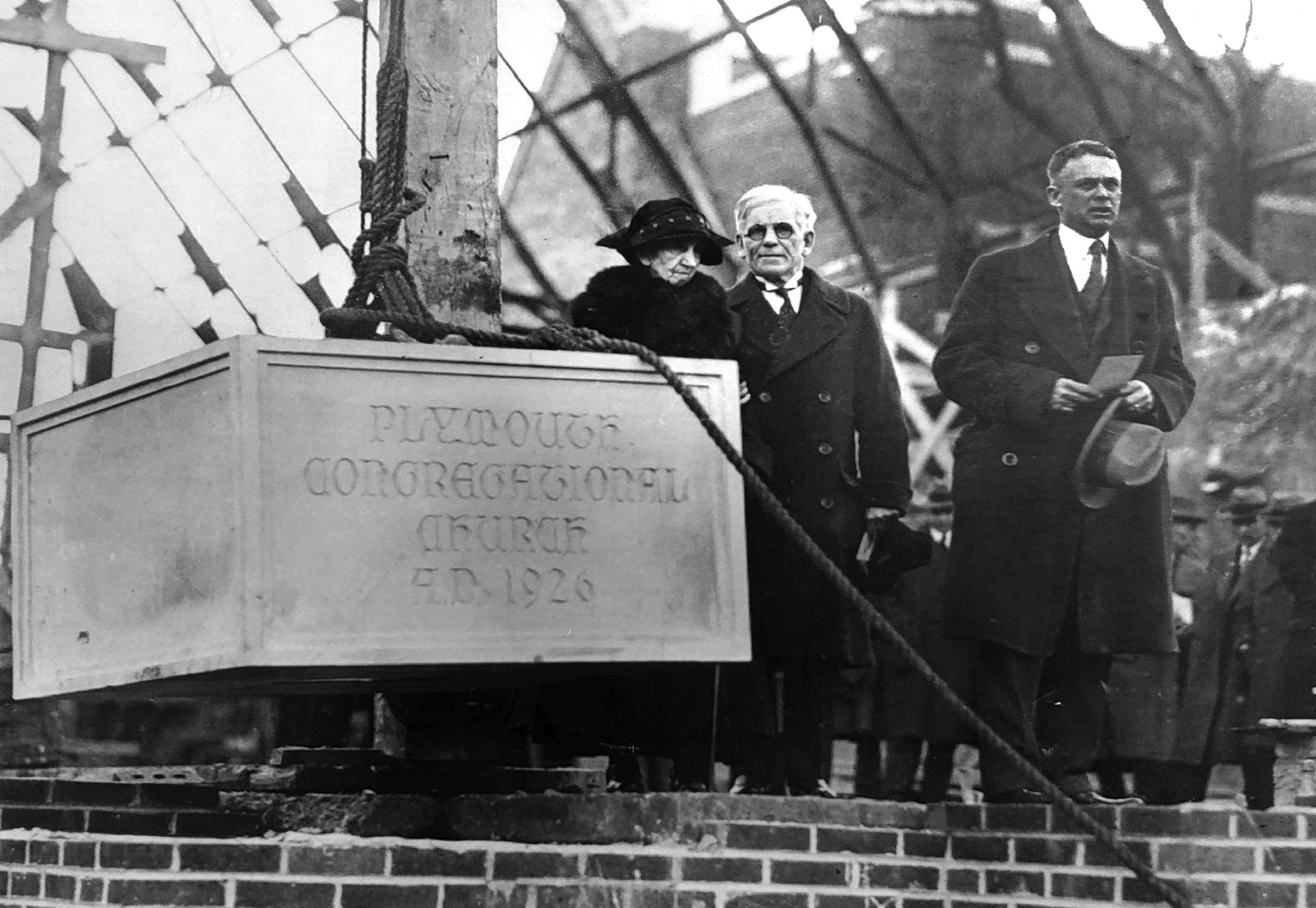
Plymouth's Cornerstone of current 42nd St. home was set in December of 1926.
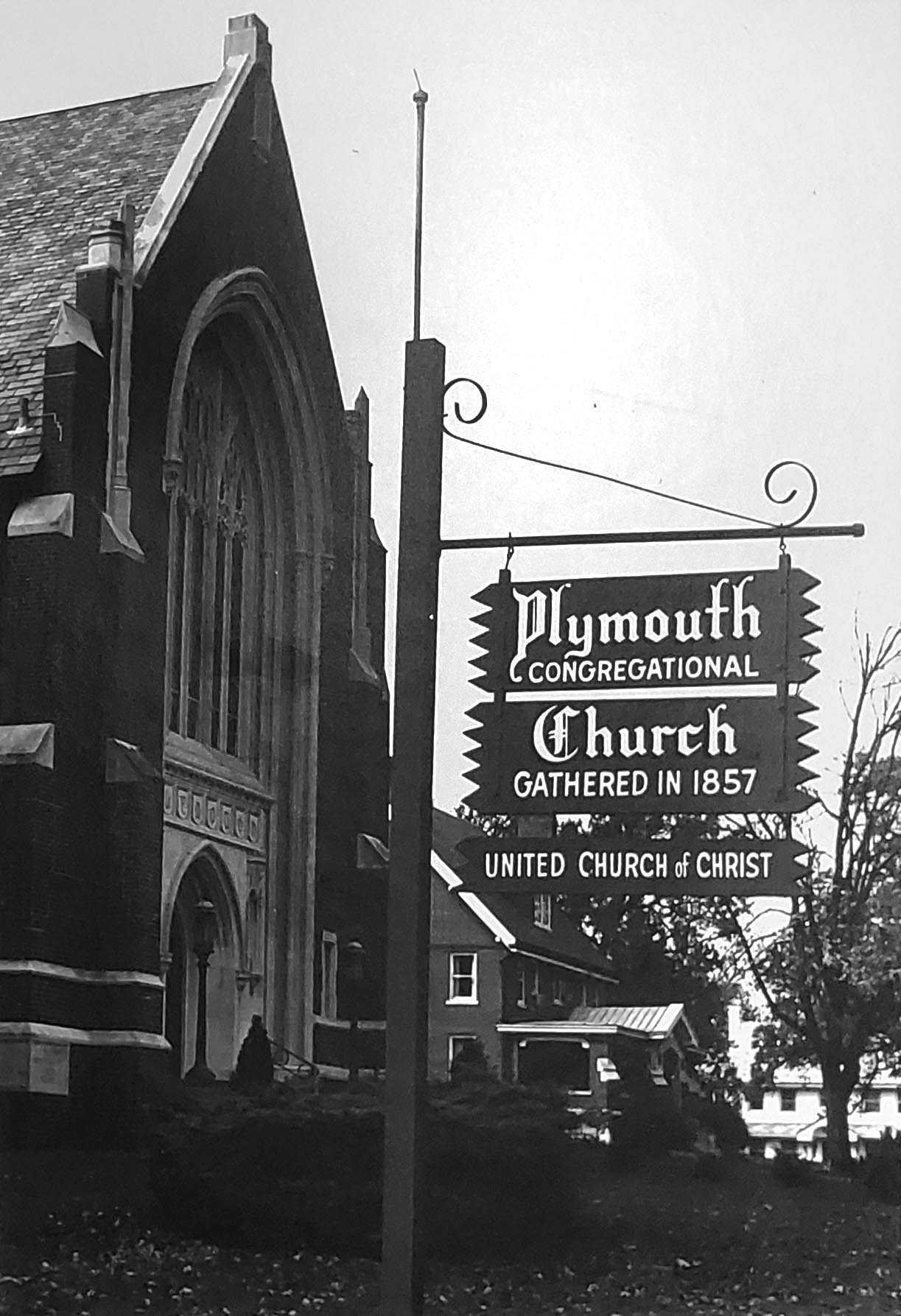
Plymouth Church's current home on 42nd St and Ingersoll Ave since 1927.
Plymouth Stained Glass
Plymouth Church is home to several historic stained glass pieces. Click here to learn more.
History in Plymouth Church Magazine
Senior Pastors at Plymouth Church
J.T. Cook, 1857-1858
J.M. Chamberlain, 1858-1865
Henry S. DeForest, 1866-1870
A.L. Frisbie, 1871-1899
Francis J. Van Horn, 1899-1903
Frank W. Hodgdon, 1903-1910
J. Edward Kirbye, 1911-1921
Burtis R. MacHatton, 1921-1929
Frederick M. Meek, 1943-1946
Fred Hoskins, 1946-1950
Charles M. Houser, 1950-1959
James W. Lenhart, 1960-1977
Ford Forsythe (Interim), 1977-1978
James O. Gilliom, 1978-1994
David R. Ruhe, 1994-2015
Mathew Mardis-LeCroy, 2015-2020
Sarai Rice (Interim), 2020-2021






